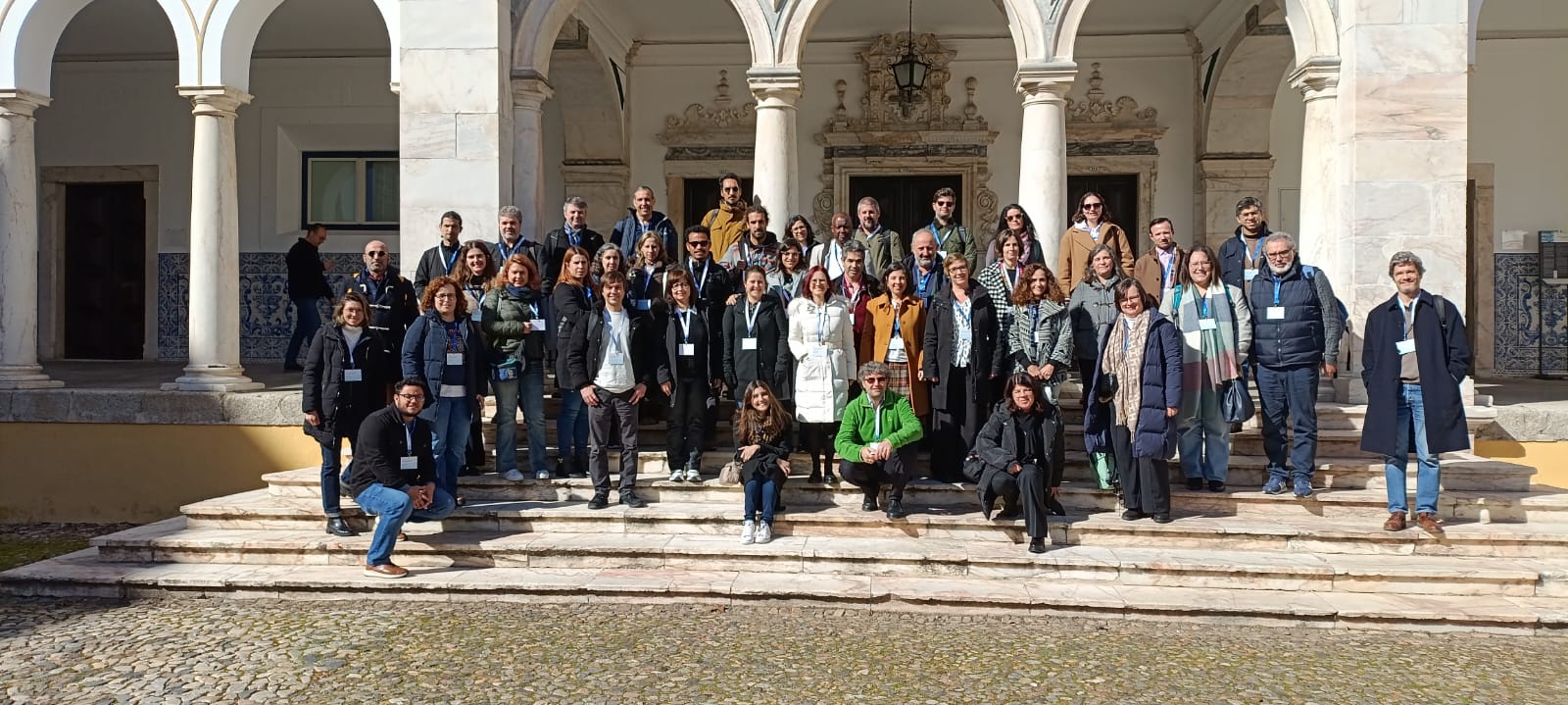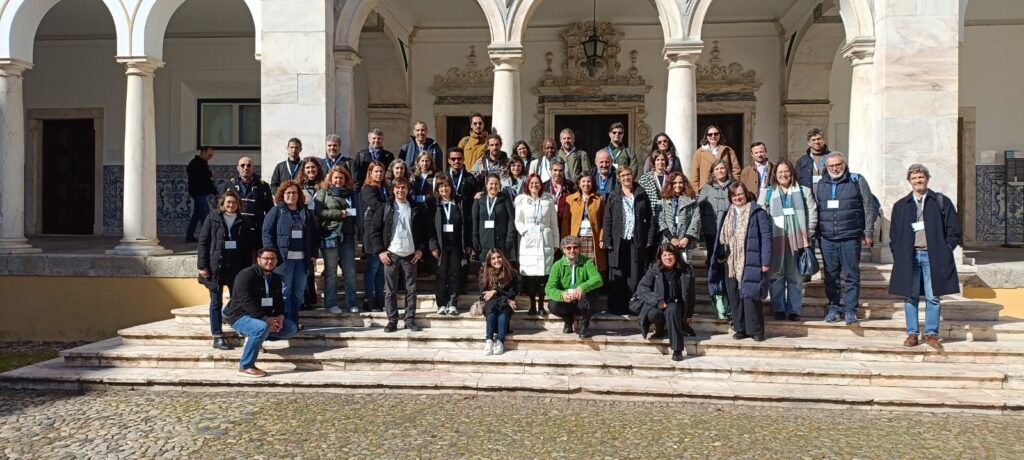
On February 6th, the University of Évora hosted a workshop dedicated to the Copernicus Atmosphere Monitoring Service (CAMS), bringing together experts and stakeholders to discuss air quality monitoring and the adoption of CAMS products in Portugal. The event was promoted by the European Centre for Medium-Range Weather Forecasts (ECMWF)—the entity responsible for implementing this essential service under the European Union’s Earth Observation Programme—alongside the German Aerospace Center (DLR), and the national consortium of the CAMS National Collaboration Programme (NCP-CAMS). The consortium is led by CoLAB +ATLANTIC in partnership with the Portuguese Institute for Sea and Atmosphere (IPMA), the Portuguese Environment Agency (APA), and the University of Aveiro.
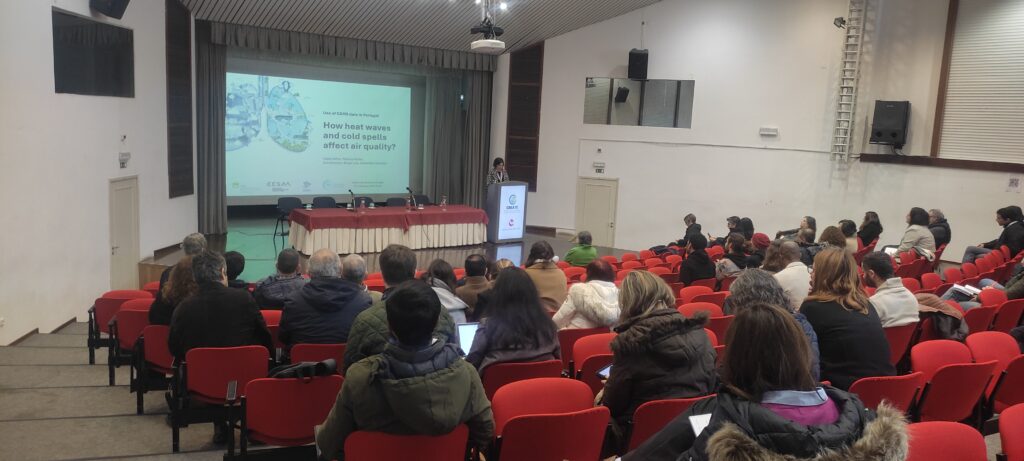
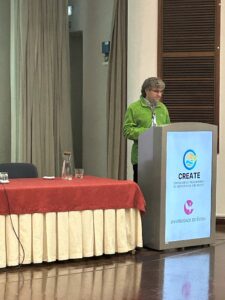
CREATE supported the organization of the event and contributed with scientific expertise throughout the day, presenting case studies on pollutant-meteorological interactions and their impact on mortality in Portugal, as well as on innovative methodologies for improving solar radiation forecasts to optimize solar energy applications.
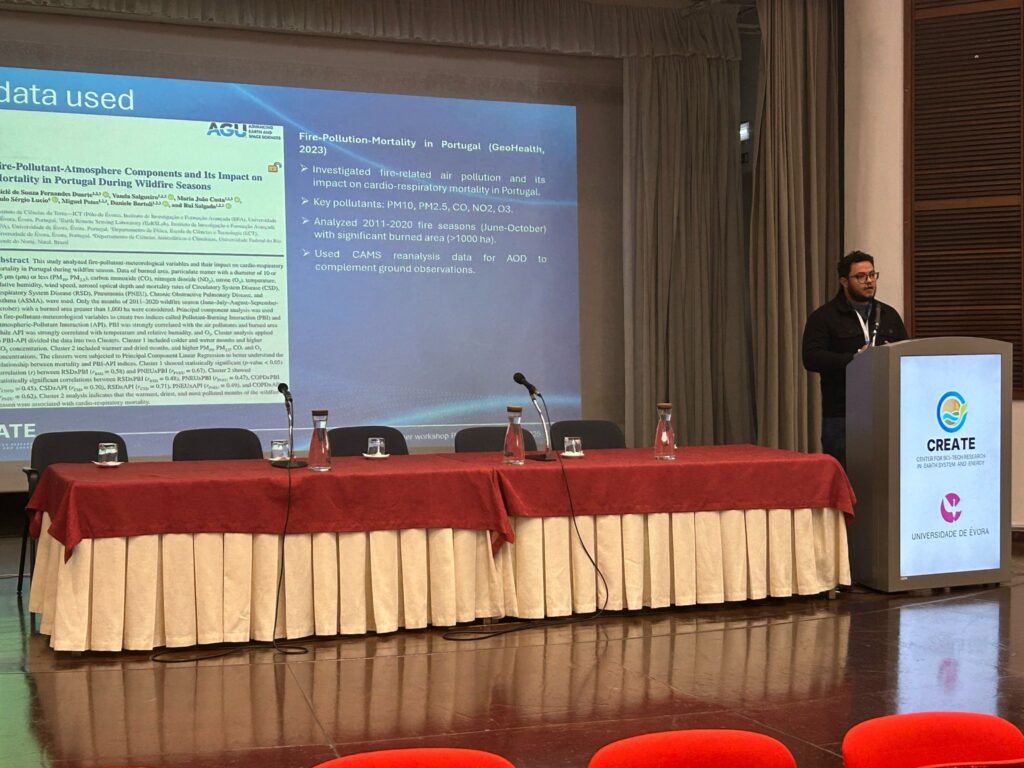
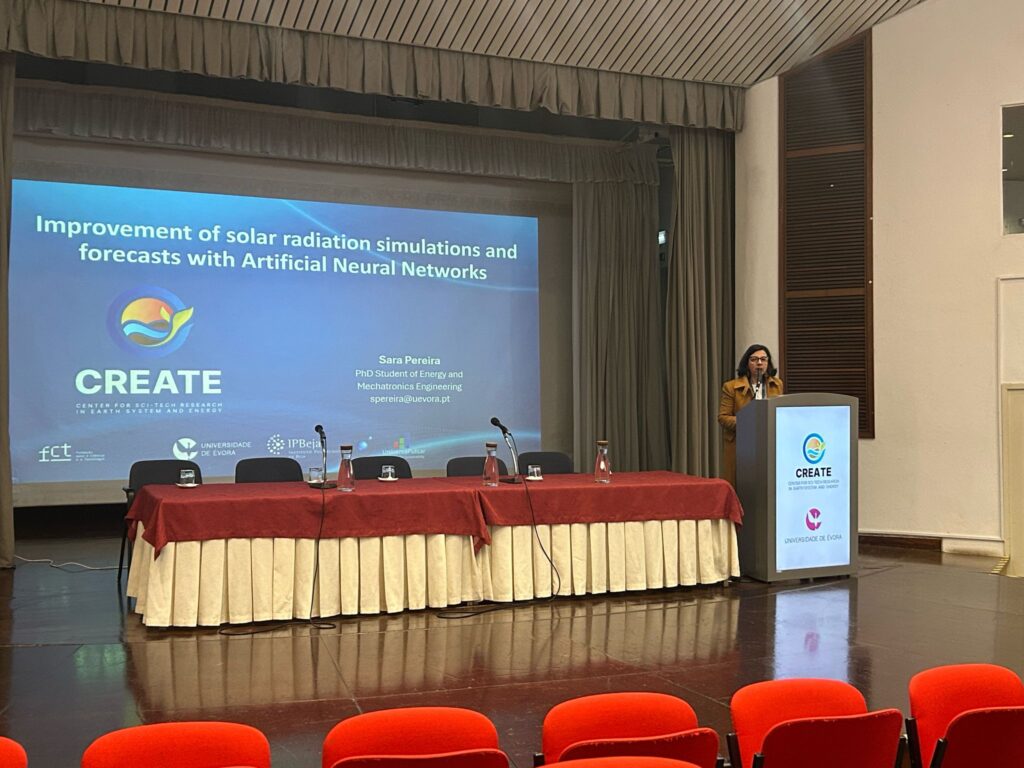
The workshop served as a key platform to strengthen engagement with national users, foster collaboration, and promote the effective adoption of CAMS products. It aimed to drive forward knowledge-based solutions that are scientifically robust, operationally accessible, and designed to enhance societal well-being and public health.
Through an interactive and participatory approach, attendees were encouraged to contribute to the definition of national and local priorities, ensuring that the adoption of CAMS tools aligns with Portugal’s specific air quality challenges and policy needs.
You can view the event agenda here.
On February 7th, the University of Évora hosted another key meeting that brought together academia, industry, and public administration to further explore the potential of Earth Observation technologies. The event was promoted by Portugal Space, with the support of CREATE, and targeted the Alentejo and Lisboa e Vale do Tejo regions.
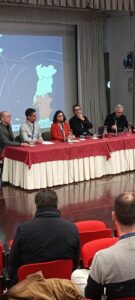
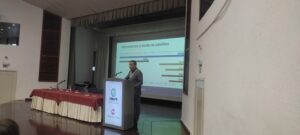
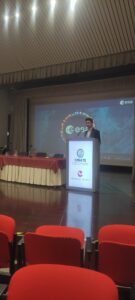
The main objective of the initiative was to promote and encourage the adoption of space technologies by municipalities, fostering innovation and efficiency in addressing local challenges.
The event agenda is available here.

